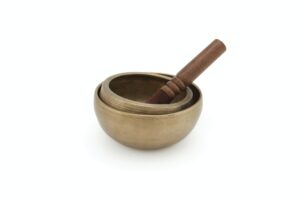Table of Contents
Honey is a syrupy liquid that offers a wide range of health benefits. In this article, we will explore the various ways honey can improve your health, including its effects during pregnancy. We will also introduce you to different varieties of honey and provide tips on buying.
Facts about Honey
Honey has been used as a sweet food since the Stone Age, as evidenced by cave paintings and wax remains from that era. The Greek physician Hippocrates of Kos even recommended honey as a remedy for various ailments.
Honey is primarily composed of different types of sugar and water. It contains approximately 40 percent fructose and 30 percent glucose, making it a natural sugar substitute.
How Bees Make Honey
Honey is primarily produced by honey bees. The bees collect nectar or honeydew, a sugary excretion, from flowers or insects, respectively, using their proboscises. The collected nectar is stored in the bees’ honey stomach and then transferred to hive bees.
Through a process of regurgitation and transfer from bee to bee, the nectar is enriched with enzymes and proteins. The bees’ wing fanning helps thicken the liquid, resulting in the viscous consistency of honey.
Nutritional Values and Calories of Honey
Honey contains important minerals and trace elements such as potassium, magnesium, sodium, and iron. However, it is worth noting that honey is relatively high in calories, with over 300 kilocalories per 100 grams.
Here are the nutritional values of honey per 100 grams:
- Energy: 306 kilocalories
- Fat: 0 grams
- Sugar: 82 grams
- Carbohydrates: 75 grams
- Protein: 0.4 grams
- Fiber: 0 grams
Honey in Pregnancy
While honey is generally safe during pregnancy, pregnant women should exercise caution when consuming untreated honey. Honey can contain bacteria such as listeria, which can cause listeriosis. However, the high sugar content of honey has an antibacterial effect that inhibits the growth of listeria.
Another bacterium that can be present in honey is Clostridium botulinum, which can cause severe food poisoning in infants. However, pregnant women can still consume honey without significant risk, as their bodies naturally neutralize the bacteria. It is important to note that infants’ intestinal flora are not developed enough to defend against clostridia until they reach one year of age.
In conclusion, consuming small amounts of honey during pregnancy and breastfeeding is generally safe.
Side Effects – When Honey Can Be Bad for You
While there are no known side effects of honey, individuals with allergies or fructose intolerance may want to avoid honey products. Honey can contain pollen, which can exacerbate allergy symptoms. Additionally, those with fructose intolerance may have an allergic reaction to honey due to its fructose content.
It is also important to consume honey in moderation due to its high sugar content. Excessive sugar intake is not beneficial for overall health.
Health Benefits of Honey – Why Honey is Good for You
Honey contains over 200 different ingredients, including enzymes, phenols, and antioxidants, many of which have health-promoting effects. Here are some of the ways honey can benefit your health:
Provides Energy
Honey, with its different types of sugar, provides a sustained release of energy. The glucose and fructose in honey are broken down by the body, providing a continuous source of energy. Honey also contains B vitamins, which aid in carbohydrate metabolism.
Prevents Iron Deficiency
Honey contains vitamin C, also known as ascorbic acid, which can enhance the absorption of plant-derived iron. Consuming honey can help prevent iron deficiency.
Honey for Cough and Sore Throat
Honey is an effective remedy for coughs and sore throats. Studies have shown that honey can alleviate the frequency and severity of coughing attacks, making it a viable alternative to antibiotics. Honey stimulates saliva production, which can soothe irritated mucous membranes and provide relief from cough and sore throat symptoms. Additionally, honey has antioxidant and antimicrobial properties.
Promotes Regeneration
Honey is popular among endurance athletes as it aids in post-workout recovery. When consumed with proteins, honey can decrease recovery time and reduce muscle stiffness. Honey is rich in amino acids, such as arginine and glutamine, which are important for metabolism and contribute to honey’s unique flavor.
Helps with Inflammation
Honey has antibacterial properties and can be used to treat inflammatory skin problems and slow-healing wounds. Its low pH and high sugar content make it effective in combating skin blemishes like acne. The enzymes in honey also have disinfecting properties.
Protects Against Disease
Honey is known for its immune-boosting properties. Studies have shown that consuming honey can increase resistance to infections by approximately 40 percent. Flavonoids found in honey have medicinal properties, strengthen blood vessels, and have antiviral effects. Medicinal honey, in particular, is excellent for strengthening the immune system and reducing the frequency of colds.
Varieties of Honey
There are various types of honey, each with its own taste and appearance. Here are six popular varieties:
Acacia Honey
Acacia honey comes in two varieties: German acacia honey and true acacia honey. German acacia honey is sourced from acacia forests near Berlin, while true acacia honey is obtained from tropical regions. Acacia honey is known for its high sugar content and sweet, mild taste. It has a light yellow to golden yellow color and a clear consistency.
Manuka Honey
Manuka honey, native to New Zealand, is renowned for its higher effectiveness compared to regular honey. It has been used as a traditional remedy by the indigenous people of New Zealand for centuries. The effectiveness of Manuka honey is determined by its content of methylglyoxal (MG), a natural metabolic product found in the bee’s stomach. Regular honey has an MGO content of one to two milligrams per kilogram, while Manuka honey contains 300 to 700 milligrams.
Forest Honey
Forest honey has a dark brown color and a spicy taste. It is created from the secretions of plants and the excretions of insects that feed on plant sap, rather than flower nectar like other types of honey. Forest honey is often derived from spruce or fir trees.
Lavender Honey
Lavender honey is a rare variety typically sourced from the French Provence region. To be called lavender honey, it must contain at least 60 percent nectar from lavender plants. Lavender honey has a distinct taste with spicy and fruity notes, making it a popular choice for dessert recipes and spreads.
Organic Honey
Organic honey is produced according to separate regulations that ensure minimal contamination from external sources. Beekeepers must locate their hives in areas where predominantly organic wild plants and crops grow within a three-kilometer radius. Organic honey is produced using environmentally friendly and sustainable practices, including the use of hives made from natural materials.
Raw Honey
Raw honey has a thicker and more opaque consistency compared to processed honey. It is taken straight from the beehive and can be bottled immediately after straining. Unlike processed honey, raw honey is not subjected to pasteurization, which preserves its natural nutrients. Raw honey does not contain pesticides, herbicides, chemicals, or pollutants, making it a healthier option compared to processed honey.
Honey as a Home Remedy
In addition to its health benefits, honey is often used as a home remedy for various ailments. Here are two popular ways to use honey as a natural remedy:
Onion Juice with Honey
To alleviate coughs and colds, you can prepare a natural cough syrup using onion juice and honey. Simply chop one onion finely and mix it with two tablespoons of honey until it reaches a liquid consistency. Let the mixture infuse overnight, then strain off the liquid and use it as a natural cough syrup.
Hot Milk with Honey
Hot milk mixed with honey is a popular remedy for promoting sleep. While the tryptophan in milk is believed to stimulate the production of the sleep hormone melatonin, the honey helps the body absorb tryptophan more effectively. This combination is soothing for sore throats and has a positive effect on the immune system and saliva production.
How to Buy Honey
When purchasing honey, it is important to consider certain quality factors to ensure a high-quality product. Here are some tips for buying honey:
- Choose glass packaging over plastic to avoid potential toxins and environmental harm.
- Look for natural cloudiness in honey, as this indicates the presence of pollen and wax, which are natural components of honey. Clear liquid honey has likely been heated, resulting in nutrient loss.
- Avoid honey with a watery layer, as this suggests inadequate stirring during production, which can lead to a loss of flavor.
- Opt for organically produced honey to minimize exposure to pesticides. Look for the organic seal of approval, which ensures environmentally friendly and sustainable production practices.
In conclusion, honey offers numerous health benefits and comes in various delicious varieties. Whether you use it as a natural sweetener, a home remedy, or a culinary ingredient, honey can be a valuable addition to your daily routine. Enjoy the many benefits of this natural and versatile syrup!



